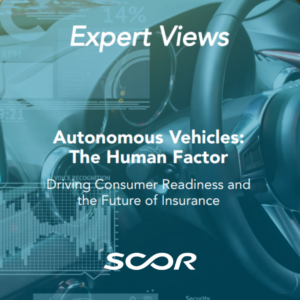Driving consumer readiness and the future of insurance
Driverless cars may seem like science fiction, but interest in autonomous vehicles (AVs) is growing around the world as the technology develops alongside the regulatory frameworks to support it. Although there are still obstacles to overcome, the future of AVs looks promising.
However, AVs’ potential benefits will only be realized if trust in the technology can be fostered so that consumers want to use them when they become available.
In this article, we will discuss the current state of developments in autonomous vehicles, their benefits, challenges, and potential impacts on the (re)insurance industry.
We will also explore how to overcome one of the biggest obstacles impacting the growth of the autonomous vehicles sector: consumer mistrust. We will apply principles of behavioral science to examine current consumer attitudes and suggest effective ways to promote public trust in these vehicles of the future.
 PAVE US
PAVE US PAVE EUROPE
PAVE EUROPE PAVE UK
PAVE UK

